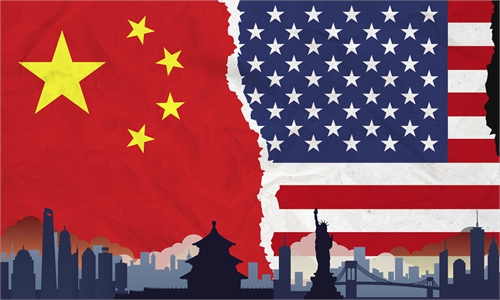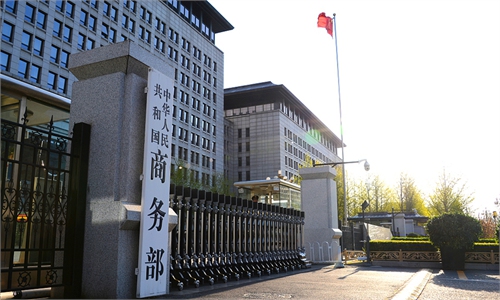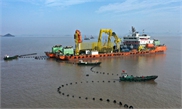
China-US Photo: GT
The US House of Representatives unanimously passed a bill on Monday that would direct the Secretary of State to work toward stripping China of its developing country status in international organizations, according to The Hill.This is not the first time that the US has pointed a finger at China's status as a developing country that gives it access to preferential loans and other economic benefits. In recent years, the US has repeatedly asked the WTO to revoke China's developing country status in an attempt to prevent China from receiving preferential treatment. But whether a country is a developing one or not is not something that can be decided by any single index or any country at will. The US has no right to play referee on China's developing country status.
The US has been seeking a change in recognizing China as a developing country, claiming that China has "taken advantage" of its developing country status. Such attempt has only further exposed Washington's sinister intentions to increase China's development cost and force China to assume international responsibilities beyond its ability. It is not hard to figure out that the ultimate goal of US gimmicks surrounding China's developing country status is to serve the US strategy of containing China's development.
If China were to be stripped of its developing country label and were classified as a developed country in international organizations, China would face considerable pressure in economic, trade and other fields, which could have a domino effect on the future development environment of China and Chinese enterprises.
For instance, some international organizations such as the World Bank could change their lending standards toward China, which means that low-interest loans to China could be reduced or canceled. Also, some tariff preferences for developing countries would be eliminated for Chinese products if China were deemed as a developed country. Moreover, since there are differences between developing and developed countries in terms of the scale and time frame of carbon emission reduction, the loss of developing country label would mean raised targets.
Yet, it is important to note that the US alone has no right to determine whether a country is a developing one or not. China now is clearly listed as a developing country in all international organizations such as the UN, the World Bank, and IMF. While after decades of development, the Chinese economy and China's per capita GDP have increased, it is still facing the problem of unbalanced development, with hundreds of millions of people only being lifted from absolute poverty in 2021.
The Chinese government has repeatedly stressed that development is China's top priority. China's per capita GDP in 2022 was $12,700, equivalent to only a fifth of that of the US. In terms of the UN Development Programme's Human Development Index (HDI), China reached 0.768 in 2021, ranking 79th in the world, which is in line with the positioning of mainstream developing countries. As the biggest developing country, China has no intention to shy away from its due international responsibilities. It is upholding the basic rights of developing countries, which is an act that champions international fairness and justice.
From another perspective, US eagerness to push China out of the ranks of the developing world reflects its accelerated protectionism and anti-globalization. There are already increasing signs that the US is trying to cut foreign trade preferences to win more trade profits.
For instance, one US senator has proposed a bill to revoke China's most favored nation trade status, which would allow the president to impose tariffs on all goods from China. In February 2020, the Office of the United States Trade Representative updated its list of countries designated as developing or least-developed under US countervailing duty laws, undermining trade advantages of emerging economies.
It should be made clear that US inclination toward protectionism is a disaster for globalization and the US should take the responsibility for the decline of globalization.



